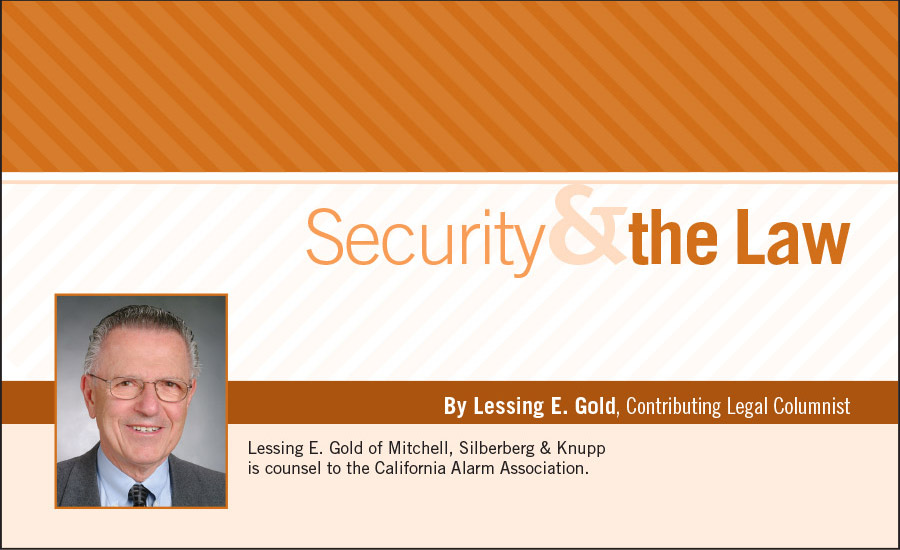A very interesting case arose before the United States Court of Appeals for the Eleventh Circuit. A defendant police officer, while driving through a neighborhood where there had been a rash of daytime burglaries, noted an individual standing on the sidewalk in front of a residence. He appeared to be looking around nervously while talking on a cellphone. The police officer became suspicious, particularly when he saw an additional young man huddling near the first suspect. The officer became convinced that the second individual was positioning himself to act as a “lookout” while the first individual broke into the house. The police officer radioed for backup, describing the unfolding situation as a “burglary in progress.”
The officers placed the suspects in handcuffs, then entered the home’s back door and shouted “Sheriff’s office, come out if anybody’s in there.” Hearing no answer, after about 10 seconds, the police officer went back outside. After additional officers arrived on the scene, the officers entered the home. Seeing what appeared to be marijuana and associated drug paraphernalia, the officers then called the Narcotics Task Force to determine whether a search warrant should be obtained for the remainder of the dwelling.
Based on the contraband, the officers swore out an affidavit in support of a search warrant. The officers conducted a full search of the house, which yielded $18,500, as well as miscellaneous drugs and drug paraphernalia.
The two suspects and the owner of the home sued the officers in State Court. The officers then removed the case to Federal Court where the two suspects and the owner filed a multicount amended complaint that alleged both state tort claims and Fourth Amendment claims. The suspects brought unreasonable search and seizure and false arrest claims against the officers and the owner brought unlawful entry and unreasonable search claims against all of the officers.
After the district court dismissed the state law and false arrest claims at the pleadings stage, the officers moved for summary judgment on the remaining counts based on the doctrine of qualified immunity. The district court granted the officers’ summary judgment on the suspects’ claims arising out of their arrest but denied the officers’ motion for the owner’s claims arising out of the multiple searches of his house. The officers claimed that the warrantless entries into the owner’s residence were justified by “exigent circumstances.” The officers further contended that if the first two entries into the home were lawful, then the remaining entries to observe the marijuana and associated paraphernalia spotted in plain view during the second entry were likewise permissible on the ground that they didn’t violate any surviving privacy issues.
The court pointed out that that to avoid personal liability for alleged constitutional torts, law enforcement officers may invoke the defense of qualified immunity, so long as their conduct does not violate a clearly established constitutional right. In order to defeat qualified immunity, the owner had to show both 1.) that the officers violated his constitutional rights and 2.) that those rights were clearly established at the time of the searches. The police may enter private premises and conduct a search if “exigent circumstances” mandate immediate action. In such cases, a warrantless search “may be legal when there is compelling need for official action and no time to secure a warrant.”
The court pointed out that the principal question here is whether exigent circumstances justified the officers’ first two warrantless entries into the owner’s home. The court concluded that they did.
The court found that the officers’ first two entries during which they spotted the marijuana and paraphernalia were justified under the exigent circumstances doctrine. Therefore, having determined that the officers did not violate the Fourth Amendment, the court reversed the decision of the district court with instructions to grant the officers’ motion for summary judgment.
Readers Ask
Q: We are a third-party monitoring station headquartered and licensed outside the state of California. We monitor alarm systems in California but do not sell, install or service the systems. Our business is only to monitor. We understand that under new California law, if you are doing business in the state you are required to have a physical presence in the state. Is that correct?
A: Yes, under California law, the Bureau of Security and Investigative Services (BSIS) is requiring companies who do business in California to maintain a physical presence in the state. Normally this could be done with the establishment of a branch office, which requires a filing with BSIS. The branch office is required to be staffed by a branch manager who must be identified to the BSIS who regulates the industry.
To ask Les Gold a question, e-mail SDM@bnpmedia.com.










